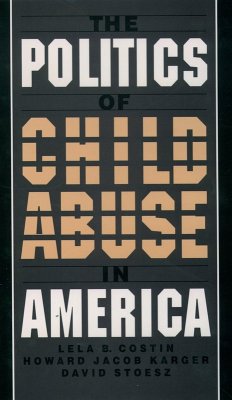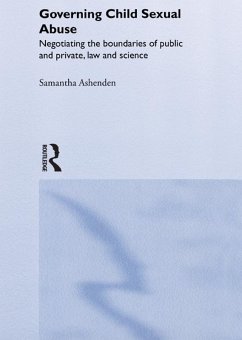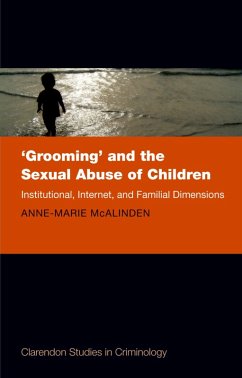
The Politics of Child Sexual Abuse (eBook, PDF)
Emotion, Social Movements, and the State
Versandkostenfrei!
Sofort per Download lieferbar
12,95 €
inkl. MwSt.
Weitere Ausgaben:

PAYBACK Punkte
6 °P sammeln!
As recently as 1970, child sexual abuse was seen as extremely rare and usually harmless. Over thirty years later, the media regularly covers child sexual abuse cases, many survivors speak openly about their experiences, and a thriving network of public and private organizations seek to prevent child sexual abuse and remedy its effects. This is the story of these dramatic changes and the activists who helped bring them about. The Politics of Child Sexual Abuse is the first study of activism against child sexual abuse, tracing its emergence in feminist anti-rape efforts, its development into mai...
As recently as 1970, child sexual abuse was seen as extremely rare and usually harmless. Over thirty years later, the media regularly covers child sexual abuse cases, many survivors speak openly about their experiences, and a thriving network of public and private organizations seek to prevent child sexual abuse and remedy its effects. This is the story of these dramatic changes and the activists who helped bring them about. The Politics of Child Sexual Abuse is the first study of activism against child sexual abuse, tracing its emergence in feminist anti-rape efforts, its development into mainstream self-help, and its entry into mass media and public policy. Nancy Whittier deftly charts the development of the movement's "therapeutic politics," demonstrating that activists viewed tactics for changing emotions and one's sense of self as necessary for widespread social change and combined them with efforts to change institutions and the state. Though activism originated with feminists, as the movement grew and spread to include the goals of non-feminist survivors, opponents, therapists, law enforcement, and elected officials, participants were pulled toward formulations of child sexual abuse as a medical or criminal problem and away from emphases on gender and power. In the process, the movement both succeeded beyond its wildest dreams and saw its agenda transformed in ways that were sometimes unrecognizable. A lucid and moving account, The Politics of Child Sexual Abuse draws powerful lessons about the transformative potential of therapeutic politics, their connection to institutions, and the processes of incomplete social change that characterize American politics today.
Dieser Download kann aus rechtlichen Gründen nur mit Rechnungsadresse in A, B, BG, CY, CZ, D, DK, EW, E, FIN, F, GR, HR, H, IRL, I, LT, L, LR, M, NL, PL, P, R, S, SLO, SK ausgeliefert werden.













